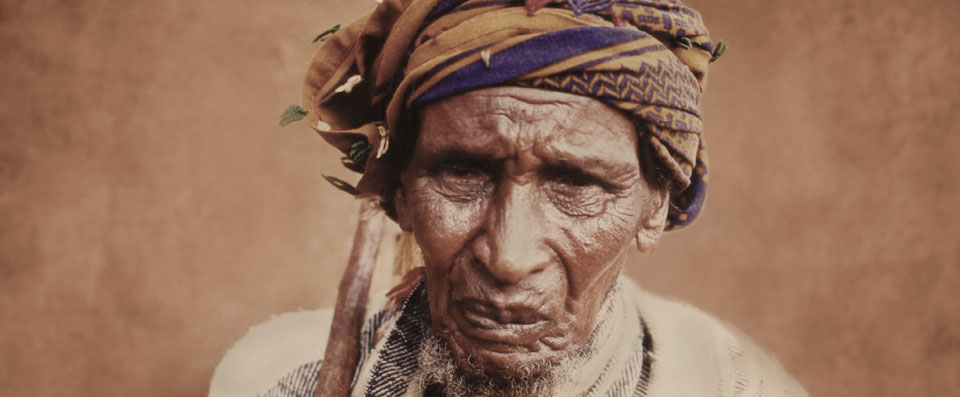
The hot desert day was over and a small group of Borana people—nomadic cattle herders in Kenya—sat down under the stars to share news and stories. As SIL workers Jim and Dorothea Lander joined them, an elder began to speak.
“Long, long ago,” he said, “the Borana people had a Book of God. We called it our Boogi Waqa and everyone had a copy. We read it often to learn how to please God. But as the years passed, our books began to wear out until eventually only one remained—the prized possession of an old, old grandfather.
“Those were years of drought, and our people relentlessly battled for survival. Day after day the old man and his family took their cattle out on long searches for grass and water. One day they left behind a cow too weak to keep up with them. Nosing around for food while no one watched, she came upon the last Boogi Waqa…and devoured it! When the old man came home that night, he found only a few pieces of leather binding scattered on the ground. Great sadness filled the camp.
“That night the old man slept fitfully and dreamt that an angel appeared to him. The angel promised that after many years God would send their book back to them. ‘Watch for a strange man from a faraway country,’ said the angel. ‘When he comes, treat him well, for he will bring back your Boogi Waqa.’
“Many years later, the first missionaries came into Borana land. Some of you remember them. They tried to learn our language, and one of them actually wrote a book he said came from God, but we could not read it.” The elder paused, and then with a long sigh, he concluded: “Now, my children, we still wait for the Boogi Waqa.”
Jim and Dorothea were still learning the Borana language, but they understood enough to marvel at the story. A few weeks later, they entertained some Borana men in their home. After dinner and several cups of sweet, creamy tea, a man named Galgalo picked up the Lander children’s English Picture Bible. Galgalo could read it because he’d served in the Kenyan Air Force. He read the story of the Tower of Babel in English, and then told the Borana men what it said in their own language.
Together they looked at the pictures in the Bible and exclaimed, “Look, these men dress just like we do, with flowing clothes and turbans! They pack their camels like we do! And this desert looks just like ours!”
Galgalo turned to Jim and asked, “Is this a Borana book? Is it…could it be…the Boogi Waqa?”
“Yes,” said Jim. “This is the Boogi Waqa.”
Silently the men stared at Jim and Dorothea. Slowly they turned their gaze back to the book. Long into the night they explored the book, examining the pictures and listening to Galgalo read. Eventually they came to a picture of the Israelites sacrificing a lamb, as God had instructed them to do in the Old Testament.
The men told Jim, “Our fathers taught us that the Boogi Waqa told how to sacrifice a lamb, so that God would forgive our sins. And sure enough here it is in this Boogi Waqa! We still do our animal sacrifices, but some of the missionaries say we should stop. Why is that?”
His heart pounding, Jim took the Bible and turned to the tenth chapter of Hebrews. With Galgalo’s help, he explained that God sent his Son, Jesus, to be the perfect sacrifice for sin. They no longer needed to sacrifice lambs each year because now they could find forgiveness of sin and eternal life by putting their trust in Jesus, who died for their sins once for all!
Health concerns later sent the Landers back home, but a Borana man, David Diida, drew on their linguistic research to spearhead a revision of the Bible and a very successful literacy program. Many groups of believers can now read their own Book of God all across Northern Kenya.
Dorothea says, “I believe God placed the Boogi Waqa story in Borana history and preserved it in their oral culture so that many years after the original book disappeared, men would seek after God and find in Him eternal life by reading their new Boogi Waqa.”
God left His footprint in the desert sands of Northern Kenya, and He’s left it in many other cultures around the world. Missionaries often think they are “taking God to the people” they are called to serve. But the truth is, He has already been there, preparing the way.
Wycliffe Bible Translators, Inc. is an interdenominational, non-sectarian, 501(c)(3) tax-exempt, non-profit mission organization, and a charter member of the ECFA.
©2014 Wycliffe Bible Translators. All rights reserved.